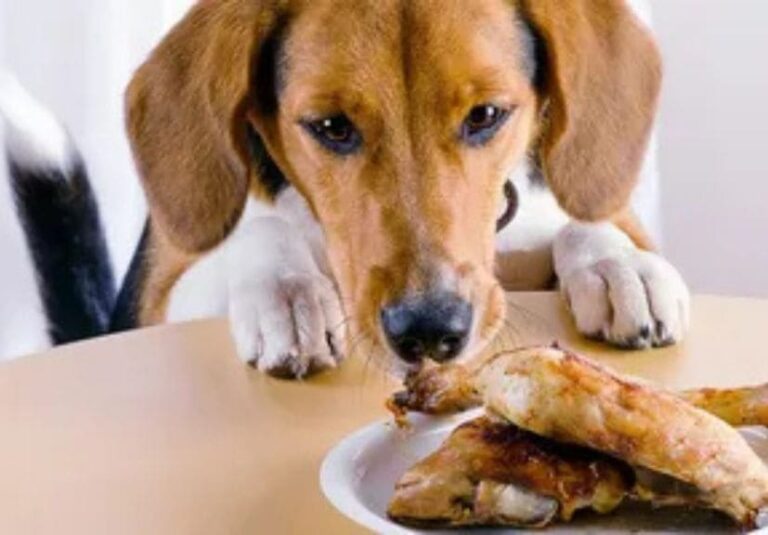The Evolution of the Human-Dog Relationship
The bond between humans and dogs didn’t happen overnight. It started thousands of years ago, when wolves began approaching human settlements, likely seeking food. Over time, this mutually beneficial relationship evolved—wolves provided protection and hunting assistance, while humans offered food and shelter. Gradually, those wolves morphed into the loyal, lovable dogs we know today.
But dogs didn’t just stop at being practical companions. They’ve evolved socially to become incredibly attuned to human emotions. Their ability to read our facial expressions and respond to our moods is a trait that’s been finely honed over centuries of living alongside us. As dog behavior expert Dr. Alexandra Horowitz says, “Dogs are unparalleled in their ability to read humans. They seem to understand our emotions better than any other animal.”
This evolutionary path created something extraordinary: a bond so strong that dogs provide companionship and enrich our emotional lives. It’s safe to say that humans and dogs have co-evolved in ways that foster affection and mutual benefit.
What Does Science Say About Dog Love?
You’re not alone if you’ve ever wondered whether your dog loves you. Scientists have been curious too. Recent research provides strong evidence that dogs experience emotions similar to ours—and love might just be one of them.
Oxytocin: The Love Hormone
When you spend time with your dog, something magical happens oxytocin levels in both you and your pet increase. Oxytocin is often called the “love hormone” because it’s the same chemical that floods our brains when we bond with another person—be it a friend, family member, or romantic partner.
Interestingly, research led by neuroscientist Dr. Gregory Berns, author of How Dogs Love Us, showed that dogs release oxytocin when they interact with their owners. In one of his studies, Dr. Berns trained dogs to lie still in an MRI scanner, and guess what? When these dogs smelled their owners, the areas of their brains associated with positive emotions lit up like fireworks!
In Berns’ words: “Dogs, indeed, have the neural capacity to love us, at least as much as a human child might.” This is a profound finding, isn’t it? It suggests that dogs feel real affection for their humans, similar to the way we feel about them.
Interpreting Canine Affection
Okay, so science is on board, but how do we know when our dogs are showing affection? The beauty of canine affection is that it comes in many forms. While it might not be as straightforward as human love, it’s real—dogs have their language of love, and it’s one we can learn to read.
Tail Wagging and Eye Contact
One of the simplest ways to tell if your dog loves you is through their body language. A wagging tail isn’t just a sign of excitement; it can be a symbol of deep affection. When a dog wags their tail and maintains eye contact with you, they’re saying, “I trust you. I’m happy you’re here.”
As Dr. Brian Hare, a professor of evolutionary anthropology at Duke University, puts it: “A dog’s gaze is incredibly powerful. It’s their way of saying, ‘You’re my person, and I’m connected to you.'”
Dogs rarely maintain prolonged eye contact with other dogs, but they do it with humans. That’s their special way of bonding with us.
Leaning and Licking
Has your dog ever leaned against you or licked your face? These actions are telltale signs of canine affection. When dogs lean into you, it’s because they feel safe, secure, and loved. It’s their way of saying, “I feel good when I’m near you.”
And those slobbery kisses? While we might sometimes interpret them as gross, in the dog world, licking is a genuine display of affection. It harkens back to their days as puppies when they licked their mothers for comfort.
Following You Around
If your dog shadows your every move—following you from room to room—it’s not just because they want food (though let’s be honest, sometimes that’s true!). More often than not, it’s a sign of deep attachment. Dogs are pack animals, and by sticking close to you, they’re reinforcing that you are a vital part of their “pack.”
Are Dogs Capable of Genuine Love, or Is It Conditional?
Some skeptics argue that dogs may not feel “love” the way humans do. They propose that dogs’ affectionate behaviors are based purely on survival instincts—food, shelter, and protection. But is that the whole story? Let’s explore both sides.
Instinct vs. Emotion
On one hand, indeed, dogs are evolutionarily wired to form attachments. As descendants of wolves, their pack mentality drives them to seek closeness and security within a group. This could explain why dogs are so loyal—they’re following ingrained survival instincts.
However, dismissing a dog’s attachment as mere instinct overlooks the rich emotional lives dogs lead. Remember Dr. Berns’ MRI studies? The fact that dogs’ brains light up in the reward centers when they see or smell their owners strongly suggests that their affection is much more than a conditioned response to food or care.
As Temple Grandin, an expert in animal behavior, puts it: “Dogs have emotions, just as people do. They experience love, joy, fear, and even empathy.”
Human Projection of Emotions
It’s true, we often project our feelings onto dogs—assigning them human-like emotions. However, the growing body of scientific research on dog emotions supports the idea that dogs do experience feelings like joy, loyalty, and yes, even love.
The argument that dogs love us solely because we feed them simply doesn’t hold water. Dogs have been shown to exhibit affectionate behaviors even when food or rewards are not part of the equation. They seek us out for comfort, companionship, and—dare we say it—love.
Bonding Techniques: How to Strengthen Your Relationship with Your Dog?
Now that we’ve established that dogs do, indeed, love us, let’s explore how to deepen that bond. Like any relationship, the human-dog connection takes effort, time, and mutual understanding.
Positive Reinforcement
One of the most effective ways to strengthen your bond with your dog is through positive reinforcement. Rewarding good behavior with treats, praise, or play reinforces your dog’s trust in you. Karen Pryor, an expert in animal training, says, “Positive reinforcement is the foundation of a strong bond between you and your dog. It builds trust and mutual respect.”
Daily Routines
Dogs thrive on routine. Consistent walks, playtime, and even snuggling on the couch reinforce their sense of security and emotional connection to you. Whether it’s a daily walk in the park or a designated time for fetch, sticking to a routine helps deepen your relationship.
Understanding Their Needs
Finally, understanding your dog’s unique needs—both emotional and physical—will help strengthen your bond. Pay attention to their body language, respond to their signals, and offer them the care they deserve.
Anecdotal Evidence: Stories of Canine Devotion
There’s no shortage of heartwarming stories that show just how much dogs love their humans. One of the most famous examples is Hachiko, the Japanese Akita who waited at a train station every day for his owner, even years after his owner passed away. Hachiko’s loyalty became a symbol of enduring love and devotion.
But you don’t need to look far for these stories. Ask any dog owner, and they’ll tell you about the time their dog refused to leave their side when they were sick or how their pup greeted them with sheer joy after a long day at work. These stories aren’t just cute—they’re proof of the profound emotional connection that dogs have with their humans.
Conclusion
So, do dogs love us? Absolutely! While there’s still some debate about whether their love is identical to human love, it’s clear that dogs feel a deep emotional connection to their humans. They show it through their body language, their loyalty, and even the oxytocin coursing through their veins when they’re close to us.
As dog lovers, we’re incredibly lucky. We’ve evolved alongside these wonderful creatures, and our bond with them is as real as it gets. Keep visiting PetJazeera for more exciting information and discussion about dogs.
How can we express our affection for them in return?
Dog training and socialization are crucial for showing them our love. Training improves our ability to communicate with them and rewards excellent conduct. Through socialization, dogs are exposed to various situations and people, which builds their self-assurance and trust. Frequent physical activity, kind gestures, and quality time spent together help strengthen the relationship and successfully express our love.
Do dogs know that we love them?
Dogs can feel and interpret human emotions and behaviors. Although they might not fully comprehend the notion of love as humans do, their comprehension of the relationship and their attachment to their owners can be enhanced by their recognition of their familiar faces, sounds, and loving gestures.
How can you tell if your dog loves you?
Signs that a dog loves you include:
- Tail wagging: Especially when you come home or during interactions.
- Physical contact: Seeking to be close to you, leaning against you, or sitting on your feet.
- Eye contact: Holding your gaze can show trust and affection.
- Excitement: Showing enthusiasm, such as zooming around or bringing you their favorite toy.
- Protective behavior: Displaying concern or protective instincts towards you.
Do dogs have a favorite person?
Dogs may indeed have a favorite family member. Frequently, this individual is the one who provides them with the most amount of time. Moreover, he walks, feeds, and shows them love and care. Dogs are gregarious creatures that develop bonds with people via good interactions and familiarity.
Do dogs sleep next to their favorite person?
It is a common dog preference to sleep near their favorite person or persons. Someone sleeping next to you may show a desire for intimacy, comfort, and trust. When they’re sleeping, some dogs may even try to make physical contact with their favorite human by snuggling or leaning on them.
Can a dog bond with two owners?
Absolutely, dogs may develop relationships with various individuals. These people include those they routinely engage with or various members of the same family. Depending on their interactions with each person, dogs can modify their actions and display affection. Nonetheless, a preference or stronger attachment to a specific individual may persist, contingent upon the quantity of time shared and the caliber of the exchanges.




